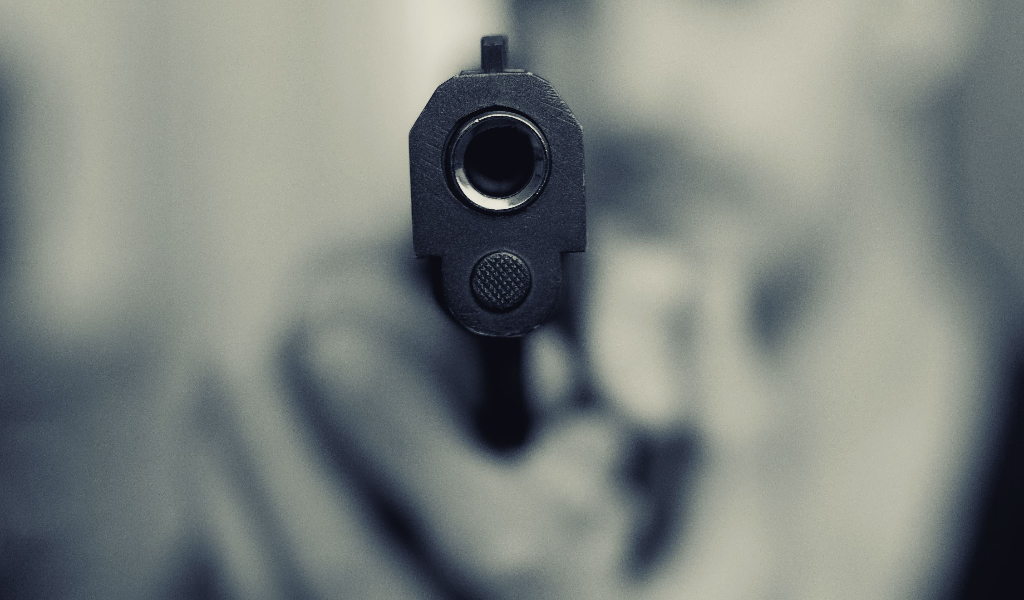Carrying an Imitation Weapon: Legal Risks and Wider Implications

16-Year-Old Arrested Carrying Imitation Weapon – But Could Face Wider Implications
Recent reports of individuals being caught with imitation firearms or weapons and behaving “unusually” near to this weekends Chelsea-Fulham football match – has raised important questions about how the law deals with such cases.
While these items are not real firearms, the law still treats them very seriously. From a criminal defence perspective, it is crucial to understand the potential consequences, both under normal circumstances and in the heightened context of modern security concerns.
The Law on Imitation Firearms
Under the Firearms Act 1968, it is an offence to carry an imitation firearm in public without lawful authority or reasonable excuse. An imitation firearm is defined broadly — it can be any object that has the appearance of a real gun, even if it cannot fire a shot. Examples include realistic toy guns, BB guns, replicas, or props.
Carrying such an item can lead to arrest, prosecution, and potentially a prison sentence, particularly if it is used in the course of another crime such as robbery, assault, or intimidation.
Sentencing will depend heavily on the circumstances, including the intention of the person carrying it and whether members of the public or police officers believed it to be real.
Normal Implications of Carrying an Imitation Weapon
Even outside the context of terrorism or heightened security, the risks are significant:
- Public fear and alarm: If someone brandishes or displays an imitation firearm in public, it is likely to cause panic. Courts often view this as an aggravating factor.
- Police response: Officers cannot be expected to distinguish instantly between a real and imitation weapon. This can lead to armed police deployments, dangerous confrontations, or even the use of force.
- Criminal charges: Offences may range from possession of an imitation firearm in a public place to more serious charges if threats or violence are involved.
The Terrorism Context
In times where terrorism and public security are at the forefront of policing, the implications of carrying an imitation weapon become even more severe.
Law enforcement and the courts may interpret the possession of such items in a much harsher light because of the potential for causing fear of a terrorist attack.
For example, if someone carries an imitation weapon near sensitive locations such as airports, government buildings, or crowded events – such as this instance a high-profile football match, the act could be treated as deliberately causing fear or even as part of a suspected terrorist offence until proven otherwise.
Even if there is no intent to commit terrorism, the public perception and police response will likely be immediate, robust, and unforgiving.
In such circumstances, suspects may face not only firearms-related charges but also additional offences under counter-terrorism legislation if there is evidence of intent to intimidate or cause widespread panic.
Defence Considerations
From a defence perspective, cases involving imitation weapons often turn on:
- Intent: Was the weapon carried for an innocent reason (such as a stage prop or hobby) or with criminal purpose?
- Context: Was it concealed or displayed in a way that caused fear? Was it in a public place?
- Knowledge: Did the individual know it was unlawful to carry such an item? Ignorance of the law is rarely a defence, but context can influence sentencing.
Defence solicitors may also challenge whether an item truly qualifies as an “imitation firearm” under the statutory definition, particularly where the object does not closely resemble a functioning weapon.
Conclusion
Carrying an imitation firearm or weapon is far from a harmless act. Even when no harm is intended, the legal consequences can be severe. In today’s climate of heightened terrorism awareness, the risks extend beyond traditional firearms offences, with suspects potentially facing increased scrutiny and more serious charges.
For anyone facing allegations involving imitation weapons, it is vital to seek specialist criminal defence advice.
Courts will always balance the facts carefully, but the combination of public fear, police response, and national security concerns makes these cases particularly complex.
How We Can Help
If you would have any questions about any firearms offences then our award-winning team of experts are on-hand to help answer any of our concerns. Call us now on 0161 477 1121 or email us.


